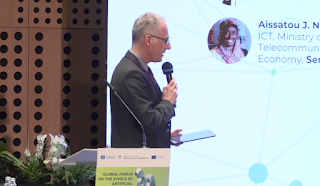I am pleased to share that Global Public Policy and Governance (GPPG) has published an issue guest-edited by Professor Dwayne Woods at Purdue University, with a theme on Artificial Intelligence (AI) and public policy. Articles in this special issue discuss issues such as harmonizing AI governance, AI in the defence sector, global governance mechanism for AI, governing AI in the EU, and regulating facial recognition technology utilization for criminal justice arrests. Contributors offer empirical evidence from a broad range of contexts, such as Singapore, hashtag China, the hashtag EU, and the hashtag US. I have participated as an article reviewer. Congratulations to the editors and the authors publishing in this special number. We will read all the contents with interest and we will cite your works.
Please, help me to share this with students, potential readers and other authors.
GPPG Issue 2 Vol. 5 (2025) table of contents:
Editorial|
From fragmentation to polycentricity: a comparative synthesis on AI governance and global policy coordination, by Dwayne Woods
Harmonizing
artificial intelligence (AI) governance: A comparative analysis of
Singapore and France’s AI policies and the influence of international
organizations
Haris Alibašić
Governing artificial intelligence in the hashtag defence sector: a comparative analysis of EU and US institutions, by Emanuele Parisini
In search of a global governance mechanism for Artificial Intelligence (AI): a collective action perspective, by Olajide Olugbade
Governing AI in the EU: public perception, policy dilemmas, and the path forward, by Colt Jensen & Charlie Chen
Global perspectives on regulating facial recognition technology utilization for criminal justice arrests
Pedro Robles, Daniel J. Mallinson, Eric Best, Cheryl Devaney & Lauren Azevedo
























